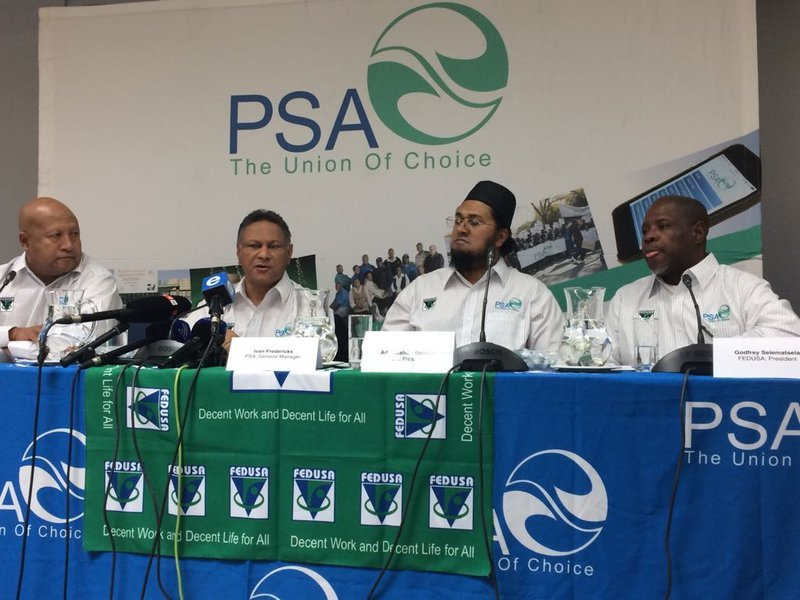PUBLIC servants appeared divided on the government’s latest on Wednesday following ongoing talks which have deadlocked for months.
Government has offered public servants a revised wage offer of 1.5% increase, plus a R1 000 cash allowance, resulting in an effective 11.7% increase for the lowest paid public servants.
The South African Democratic Teachers Union (Sadtu) told its members on Wednesday that it has informed its members to accept the offer, saying the proposed offer was not ideal but one that members would sign given various challenges.
“The national executive of Sadtu has said that under these circumstances, it’s not a very good deal. However, the members have suffered a great deal last year without any increase, so the members should accept this increase on the basis that members want money to deal with various issues. As Sadtu, we will sign after seeking clarity on Friday,” said Sadtu general secretary Mugwena Maluleke.
However, other unions such as the National Education, Health and Allied Workers’ Union (Nehawu), the Public Servants’ Association (PSA) and the Police and Prisons Civil Rights Union (Popcru) have, meanwhile, rejected anything outside the baseline.
Nehawu said it will decide at its special national executive committee (NEC) on Thursday on the government’s latest public service wage offer.
Earlier, Nehawu said the proposed wage increase was a fallacy, because this was a percentage already budgeted for and did not come as a result of the negotiations.
“Whatever happens we shall work very hard to defend collective bargaining in the public service and by extension across the public sector. Nehawu remains resolute that it shall refuse to sign any offer outside baseline, which does not contribute to the pensionable service, as a matter of principle.”
The union is scheduled to hold its special NEC meeting to receive feedback from its negotiators at the Public Service Co-ordinating Bargaining Council (PSCBC), which held a meeting on Tuesday, where the government tabled its offer, which Nehawu says “translates to an additional R22 from the initial R978” put on the table by the employer.
”Whatever happens, we shall work very hard to defend collective bargaining in the public service and by extension across the public sector,” the union promised its members in an update on Tuesday.
Popcru’s spokesperson Richard Mamabolo said the police union would reject the offer if the employer made no adjustments by Friday.
“Popcru demands that the employer must consider incorporating non-pensionable gratuity into the baseline to effect real increase into public servants salaries. We are still adamant that [in case of] failure by the employer to pronounce on Friday on the issue of baseline, we will reject the offer, as earlier communicated to our members.”
Reuben Maleka, PSA spokesperson said it would also reject the offer.
In recent months, the PSA accused the government of negotiating in bad faith.
“One of the PSA’s main concerns is the well-planned onslaught on collective bargaining by the custodian of collective bargaining in our country, namely government itself. Government approached the 2021 public service salary negotiations with a closed wallet. It is proposing to public servants to pay their own 1.5%-salary increase from their own pay progression, thereby offering no real wage increase,” said Maleka.
“The PSA declared a dispute, invoked dispute resolution remedies and is ready to follow its members’ mandate to ensure a fair salary increase. In utilising legal remedies at its disposal, the PSA will continue to lead labour in SA by being principled and strong,” said spokesperson Reuben Maleka.
Democratic Nursing Organisation of South Africa spokesperson Sibongiseni Delihlazo said its national executive was discussing the matter and a resolution would be communicated in due time.
Public service and administration minister Senzo Mchunu on Monday described the inability to reach an agreement as a crisis that needed to be averted urgently.
“In our view, this is a reasonable offer that we have been able to make. We may not say it is all that the unions were looking for, but it would be extremely hard for us to say this is very little amid the difficulties in [the economy],” said Mchunu.
- Inside Politics



